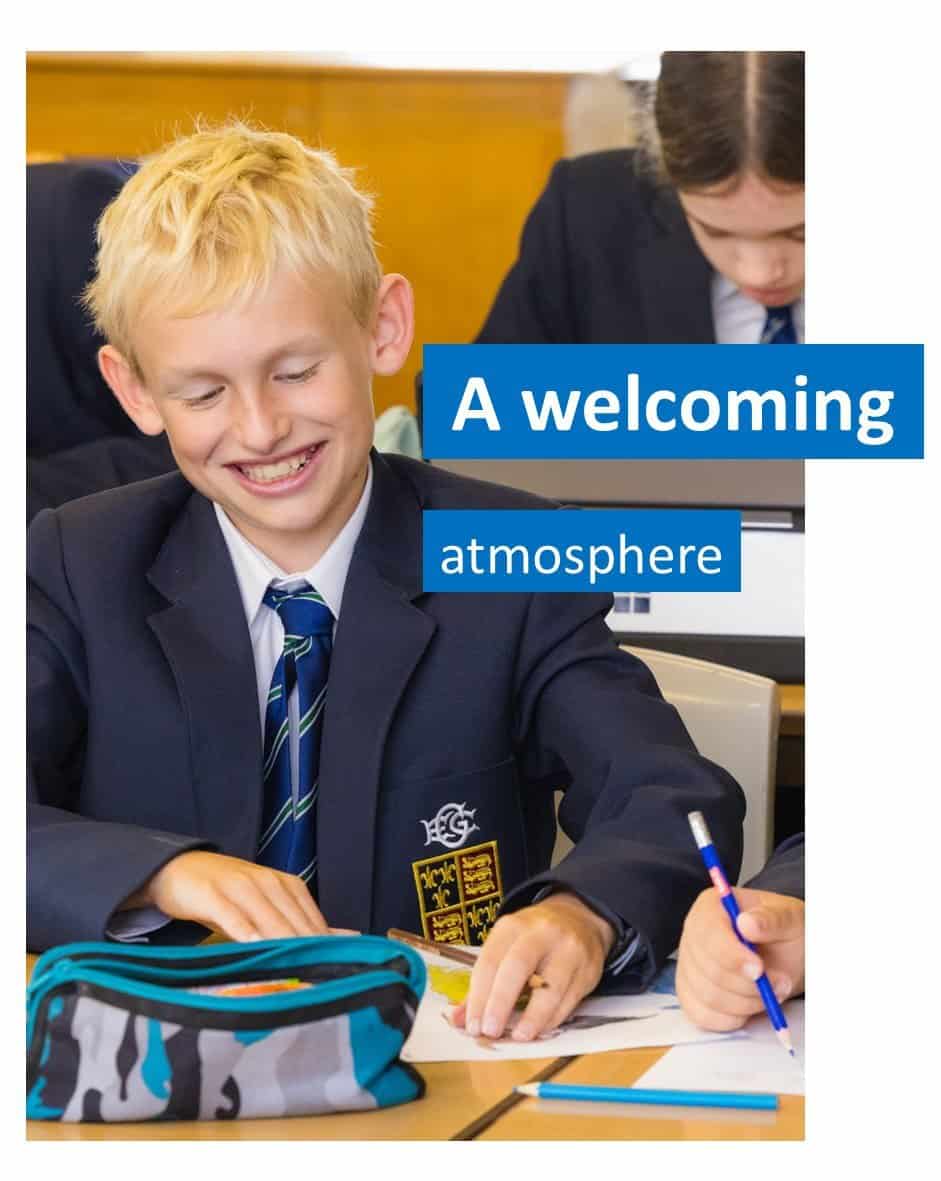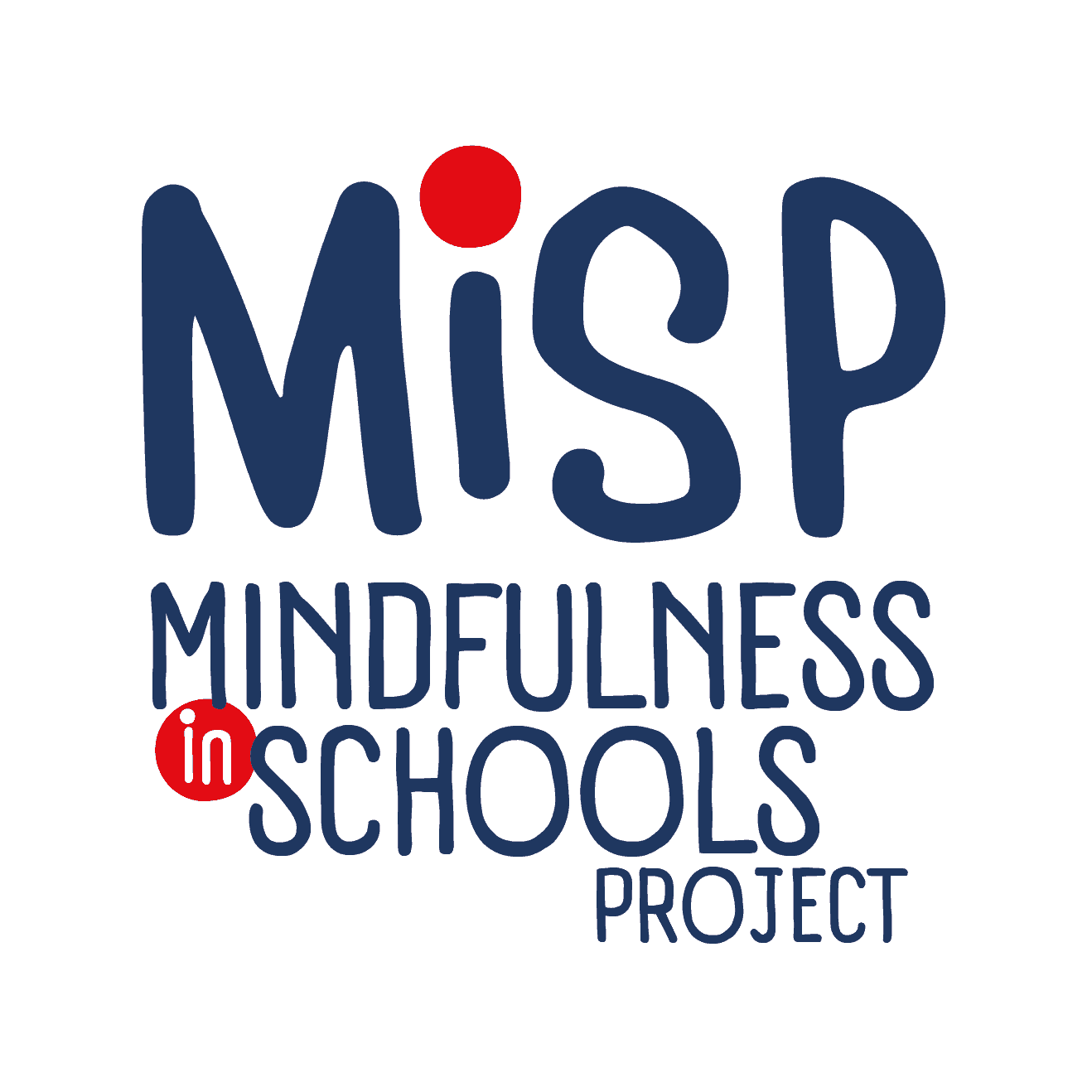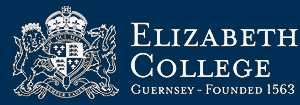
Pastoral Care
From when children start at Elizabeth College in the Junior School, right through to when they leave us after Sixth Form, we aim:
- To create a caring environment where students are valued for who they are, not just for what they currently contribute;
- To ensure every student has the self-confidence to tackle both academic and personal challenges;
- To provide students with opportunities for involvement, leadership and service;
- To encourage students to exercise individual and social responsibility;
- To ensure that each student has access to personal, vocational and academic guidance and support, where necessary; and
- To establish and maintain excellent communication with every parent, so that together we can help prepare students for adult life.

KEY INITIATIVES
RESPONSIBILITY
Pastoral care is the responsibility of the whole school community. The way we talk, interact and teach all contribute to the quality of our care. To ensure all of our students are appropriately supported we have structures in place to make sure everyone in our community thrives. For our students from Pre-School through to Sixth Form, there is regular communication with parents.
Pastoral tracking between the Junior School and Upper School ensures that the often difficult transition phases for students are as smooth as possible. In addition, there is a Welfare Management Team that includes the Child Protection Officers from the Upper and Junior Schools. The College Chaplain is located in the Wellbeing Hub in Perrot Court and makes regular visits to ECJS. The School Nurse is another useful resource to provide additional support, who visits weekly.
Across all year groups the student diary is paramount. Email, phone calls and the occasional meeting are also encouraged. In addition to the regular parents’ evenings, there are pastoral information evenings to ensure the school is working with parents on issues of pastoral care and academic progress.
For our younger children class teachers are the first point of contact for parents and students. Class teachers are in turn supported by the Deputy Headteacher (Pastoral), who has overall responsibility for the well-being of the students at the Junior School, while the Headteacher is kept informed of all Pastoral matters.
As students move up through the school their Tutor becomes responsible for the pastoral and academic well-being of their Tutees. Heads of Year, with the support of the Vice Principal (Pastoral), oversee a team of tutors. Tutors and Heads of Year are encouraged to be in contact with parents on a regular basis.
PSHE & LIFESKILLS
Elizabeth College is committed to providing a holistic education for all our students and see our academic and pastoral work as interrelated and complementary. We believe it is vital that, alongside achieving their academic potential, our students learn skills and have experiences that enable them to thrive and flourish during the school day, away from school and in the years beyond Elizabeth College.
Our community wide emphasis on wellbeing, together with age appropriate PSHE (Personal, Social and Health Education) lessons equips our students to do this.
The pastoral support system is enhanced by a rich and varied programme of assemblies that sees visiting speakers from charities and church groups meeting the pupils on a regular basis. The PSHE programme of study also makes students aware of outside agencies that provide support to students as they tackle the challenges of growing up.
MINDFULNESS
 Elizabeth College is delighted to be part of the UK National Mindfulness in Schools Project. With two fully qualified mindfulness teachers, Elizabeth College has added ‘cognitive mindfulness skills’ to the PSHE programme for all our Year 7 students.
Elizabeth College is delighted to be part of the UK National Mindfulness in Schools Project. With two fully qualified mindfulness teachers, Elizabeth College has added ‘cognitive mindfulness skills’ to the PSHE programme for all our Year 7 students.
The Mindfulness in Schools Project is designed to help young people to manage difficulties and flourish. Mindfulness helps train your attention to be more aware of what is actually happening, rather than worrying about what has happened or might happen. Mindfulness teaching is designed to empower students to bring greater curiosity to whatever it is we experience. Jon Kabat-Zinn, the founding father of secular mindfulness, described this skill as ‘being alive and knowing it’.
If we can support our students to recognise worry, manage those difficulties, and develop a more mindful awareness, we can help them to appreciate what is going well so they can really thrive. Mindfulness can help you to develop a greater awareness of relationships and how to manage them, and a richer understanding of things like self-esteem and optimism. It can also help us to understand and direct our attention with greater awareness and skill, improving concentration and the ability to plan.
Elizabeth College is proud to be the only school on island which is part of this important project and to be able to deliver evidence-based mindfulness resources to our students. The Mindfulness in Schools Project is designed to help young people to manage difficulties and flourish. It is a national, not-for-profit charity, established in 2009, that aims to improve the lives of children and young people by making a genuine, positive difference to their mental health and wellbeing.
THE WELLBEING HUB
The Wellbeing Hub is a new, dedicated space in the facilities at Perrot Court. Situated just of the library and opposite the Sixth Form Centre it is a place for students and staff to explore, learn and interact with all sorts of useful resources and materials around health and wellbeing. There is a dedicated room for reflection and meditation as well as soft seating spaces where students can spend quiet time away from the busy, buzz of everyday school life.
For further information on how to access the services available to students, including access to specific services including coping with exams visit the Wellbeing online noticeboard via the QR code below.

CHAPLAIN
Our chaplain, the Reverend Peter Graysmith, is available as a pastoral support and confidential listening ear for staff, students and parents and nurtures spirituality and religious and philosophical reflection within school, as well as leading our collective worship in College services.
RIGHTS RESPECTING SCHOOL
Elizabeth College Junior School is a Rights Respecting School and is delighted to have recently received its Silver Award.
The Rights Respecting School Award is an initiative run by UNICEF UK, which encourages schools to place the UN Convention on the Rights of the Child at the heart of its ethos and curriculum. A Rights Respecting School not only teaches about children's rights, it also models rights and respect in all its relationships, whether between children or between children and adults.
In practice this means that the children at ECJS, and the wider school community, all know about and understand the UN Convention on the Rights of the Child and can describe how it impacts on their lives and on the lives of children everywhere.
The ECJS School Council has been instrumental in leading the Junior School’s Rights Respecting Journey. The council members and staff meet regularly to collaborate on how best to support and embed the rights-respecting ethos within ECJS.
PARTNERSHIPS
We are delighted to work with a number of expert practitioners and agencies, covering a wide range of topics.



